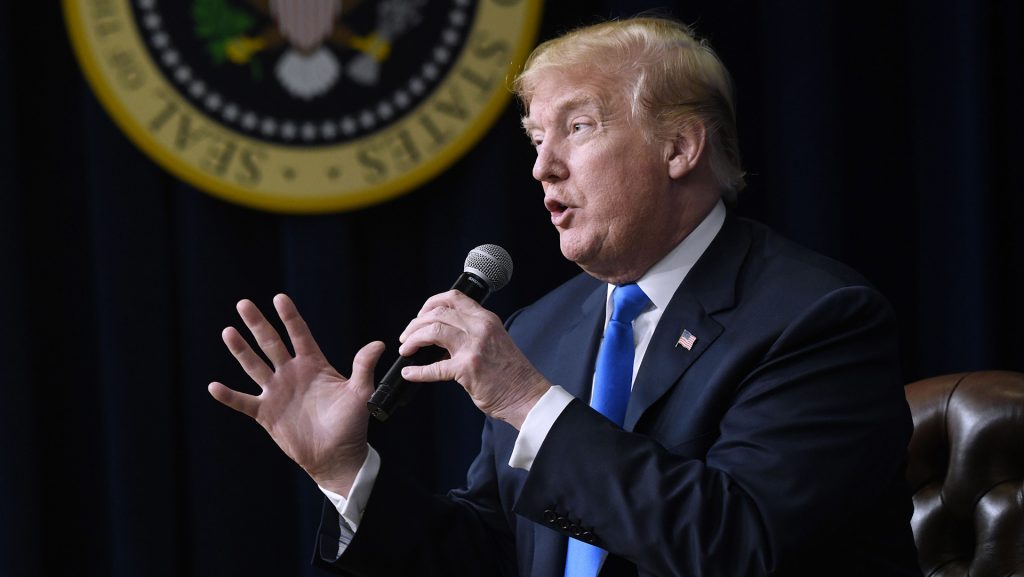On Monday, President Trump renewed his call for a “no tolerance” drug-offense policy, giving drug traffickers the death penalty. Perhaps even more disturbingly, Trump praised the handling of drug offenders in the Philippines and China, in which extrajudicial killings and a disregard for the rule of law are the norm. The Trump administration walked this rhetoric back somewhat, clarifying that it will pursue the death penalty when appropriate under the current law. Trump’s infatuation with tough-on-crime rhetoric is a dangerous harking back to the failed policies of the War on Drugs.
The U.S. does have a drug problem. The Office of National Drug Control Policy estimates that $100 billion worth of illegal drugs were sold in the U.S. in 2013. Perhaps an even more pressing threat is prescription-drug abuse, fueling the rise in opioid overdoses. Therein lies the first problem with Trump’s rhetoric. He wants to hold folks who cause indirect deaths accountable through the death penalty, but the largest supplier of drugs that people overdose on is Big Pharma. While prescription drugs are legal, revelations in past years have shown gross negligence and pill-pushing practices among some of the largest, most profitable U.S. pharmaceutical companies. Why should pushing pills through unscrupulous means be treated differently from some small-time drug pusher? No one is calling for the execution of pharmaceutical executives, understandably.
RELATED: War on Drugs crashes home
If we want to deter drug abuse and overdose, we need to start with stricter laws and policing pharmaceutical companies and opioid medications.
If Trump wants fewer drugs on the street, the death penalty is both an impractical and ineffective deterrent. There is no conclusive evidence to suggest the death penalty reduces the numbers of crimes committed. Even if it did, the rest of the world is moving beyond the death penalty. The U.S. can’t even get the necessary drugs for executions still pending, as many foreign drug companies will not produce the drugs necessary or won’t sell them for our purposes. Executions are costlier than life in prison and ineffective as a form of deterrent. Beyond the practical, executions are a barbaric and immoral form of punishment that promotes excessive state power and has led to the death of innocent people. According to a study by Proceedings of the National Academy of Sciences, one in 25 people executed in the U.S. are innocent.
RELATED: Learn from the war on drugs in criminal-justice reform
Going after the suppliers is only one part of the equation. The real effort has to be focusing on the demand. There is no way to completely stop the supply of drugs; there will always be a supplier if the demand is there. Remove the demand, and you remove any incentive to import drugs. Rehabilitation services must be expanded in the U.S. if we want to effectively deal with drug abuse and overdoses. The best way to go about doing this is first by offering drug rehabilitation and counseling services through Medicare and Medicaid. Treatment is not easy or cheap, so without subsidies, people will not seek, or be able to afford, any course of action that will free them from their addiction.



